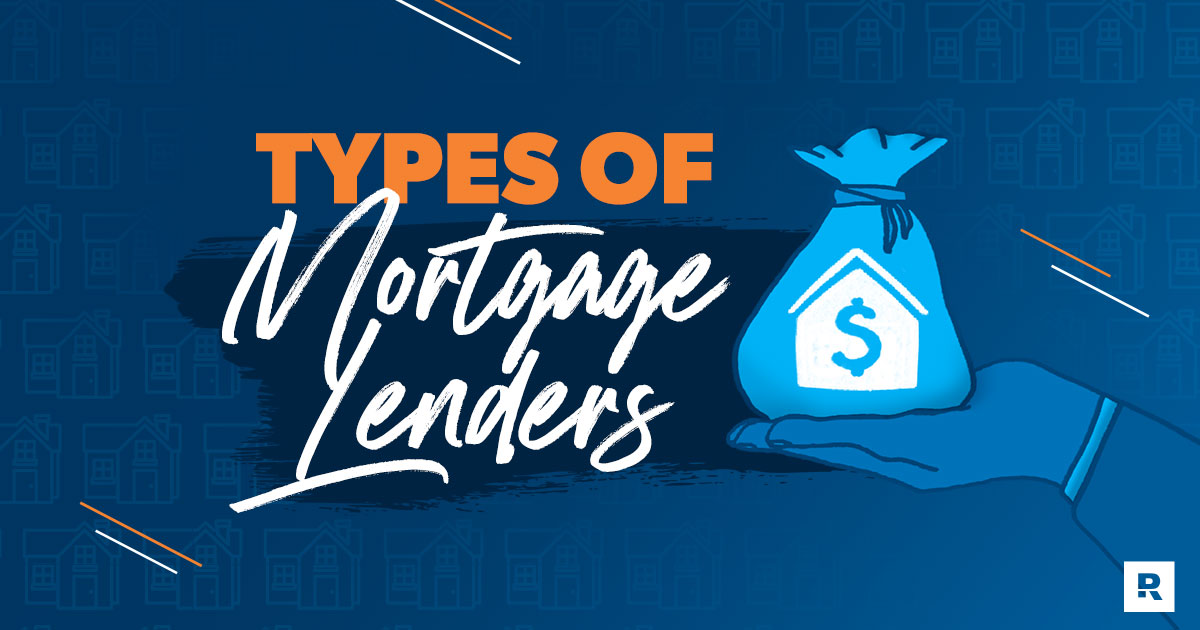
Banks, mortgage brokers, direct lenders. Is there really a difference among mortgage lenders?
Absolutely.
Sure, shopping for a mortgage lender can feel like feeding bread to a flock of pigeons: Soon, you’re surrounded by birds that all look alike. And once they know who you are, they’ll never leave you alone!
But choosing the right lender can save you time, money and a lot of frustration in the long run. So before you take out a home loan, let’s break down the different types of lenders and find the right one for you.
What Are Mortgage Lenders?
Simply put, a mortgage lender lends you money so you can buy a house. Mortgage lenders come in all different forms—a bank, a credit union, a broker or an independent lender. But they all have one thing in common: When they give you money, they expect you to repay them the full amount you borrowed (plus interest). Before you start comparing your options, make sure you’re familiar with the mortgage loan do’s and don’ts so you know what to expect in the process.
When do you need a mortgage lender?
Before you take out a boat-ton of money, make sure you know how to drive the boat. You should be out of debt, equipped with an emergency fund of three to six months of expenses, and have at least a 10% down payment. (Twenty percent is even better and will keep you from paying private mortgage insurance on top of your monthly mortgage payment.)
Find a Mortgage Lender You Can Trust!
You also should know how much mortgage you can afford. Don’t let your lender decide this. You decide. You can do that right now with our mortgage calculator. Our recommendation is to take out a 15-year fixed rate mortgage with a payment that’s no more than 25% of your monthly take-home pay (including taxes and insurance).
Alright, the pep talk’s over.
Let’s look at some people who can give you that mortgage.
What Is a Mortgage Broker?
Mortgage brokers work with several different lenders and banks to match you with a loan that meets your needs. You can think of brokers as the middlemen between you and the lender.
What does a mortgage broker do?
A mortgage broker is basically the middleman between you and a mortgage lender. They look over your loan application and say, “Hey buddy, it looks like you can afford this much mortgage. I’ll find you a good lender.”
You shake hands and they go to a group of lenders and say, “Hey folks, look here. My buddy can take out this much mortgage. Who’s got the best deal?”
A lender raises their hand, and the broker brings them to you, takes your money, and says, “Hey, look! It’s a perfect fit!”
And that’s about it.
What doesn’t a mortgage broker do?
Now, keep this in mind: A mortgage broker doesn’t actually approve your mortgage. That’s the job of the lender. All a broker does is connect you to a mortgage lender or bank.
Is a mortgage broker expensive?
A mortgage broker isn’t cheap. You’ll pay them 1–2% of your total mortgage.(1) And more often than not, a broker would love to lock you into a bigger mortgage, even if you can’t afford it. Why? The bigger the loan they convince you to take out, the more compensation they get from the lender.
So are they worth the extra cost?
Short answer:
Not really.
Long answer:
Some people like mortgage brokers because they do the mortgage shopping for you. But here’s something you should know: A lot of lenders don’t work with brokers. So when a broker says they’re giving you a good deal, what they mean is that they’re giving you the best deal out of the pool of lenders they work with.
That pool can be big. Or it can be small. The bottom line is: You may miss out on a better deal with a lender simply because your broker doesn’t work with them.
Want More Expert Real Estate Advice?
Sign up for our newsletter! It’s packed with practical tips to help you tackle the housing market and buy or sell your home with confidence—delivered straight to your inbox twice a month!
What Is a Direct Lender?
A direct lender’s job is to make and fund mortgages. Unlike mortgage brokers, direct lenders approve your mortgage applications and loan you money directly because they are the lender.
One of the biggest advantages to going with a direct lender is that they take care of the whole mortgage process. They do everything from processing your loan application to giving you a mortgage preapproval to underwriting your mortgage.
What does that mean for you? The faster a lender works, the quicker you get your mortgage. And when you’re trying to close on a house, getting your mortgage faster gives you an advantage over slower borrowers.
What Is a Credit Union?
Credit unions are not-for-profit organizations. They’re sort of like the country club of the mortgage world: Members own the credit union, and to become a member, you need some kind of invitation, like from your company or church. They’re the closest thing to the old-fashioned, small bank. (So yes, they still have a soul, so to speak.)
Credit unions will give out mortgages, but here’s the thing: You have to be a member to get one. If you are a member, there’s a good chance you might have lower closing costs and a better interest rate.
What About a Bank?
Yes, you can also take out a mortgage through a bank. In fact, if you have a good, long-standing relationship with your bank, they may lower your closing costs and interest rate. As with direct lenders and credit unions, banks process their mortgages in-house.
But be careful with some of the big banks. Though they offer a wide variety of financial services—not just mortgages—they may not give you the best customer service.
Which Mortgage Lender Do We Recommend?
If there’s one thing you get from this article, it’s probably that there are more mortgage lenders out there than you thought.
But just because you have a wide selection, doesn’t mean you should go all eeny-meeny-miny-mo on your choice. You don’t want just anyone lending you money. You want someone who cares about you and your journey toward financial peace.
If you’re looking for someone who will walk with you in the mortgage process every step of the way, check out Churchill Mortgage and talk to a home loan specialist.
The folks over at Churchill have been helping families like you get mortgages the smart way for over two decades.
So contact a Churchill Mortgage loan specialist today!
Did you find this article helpful? Share it!

We Hear You!
We’re considering adding the ability to save articles to your Ramsey account.




